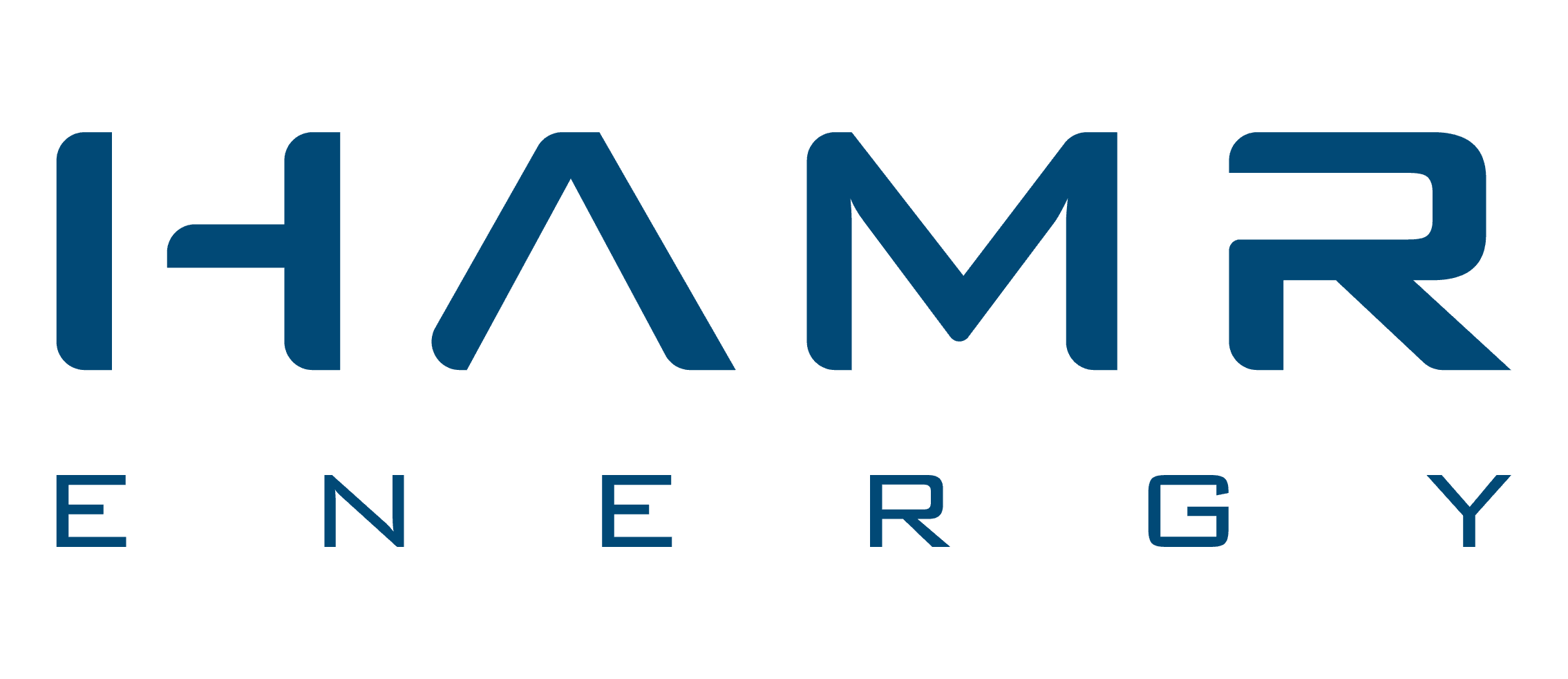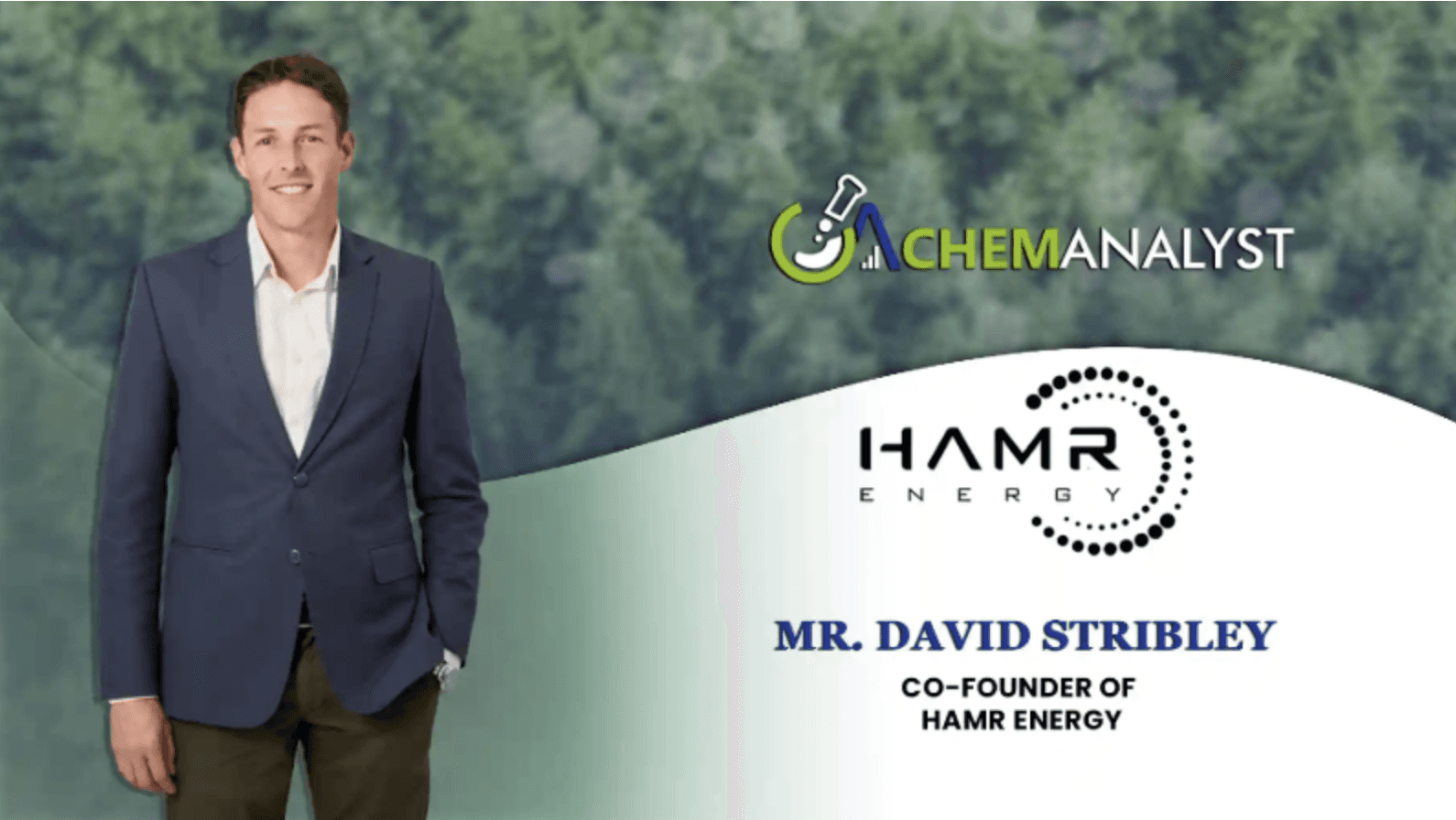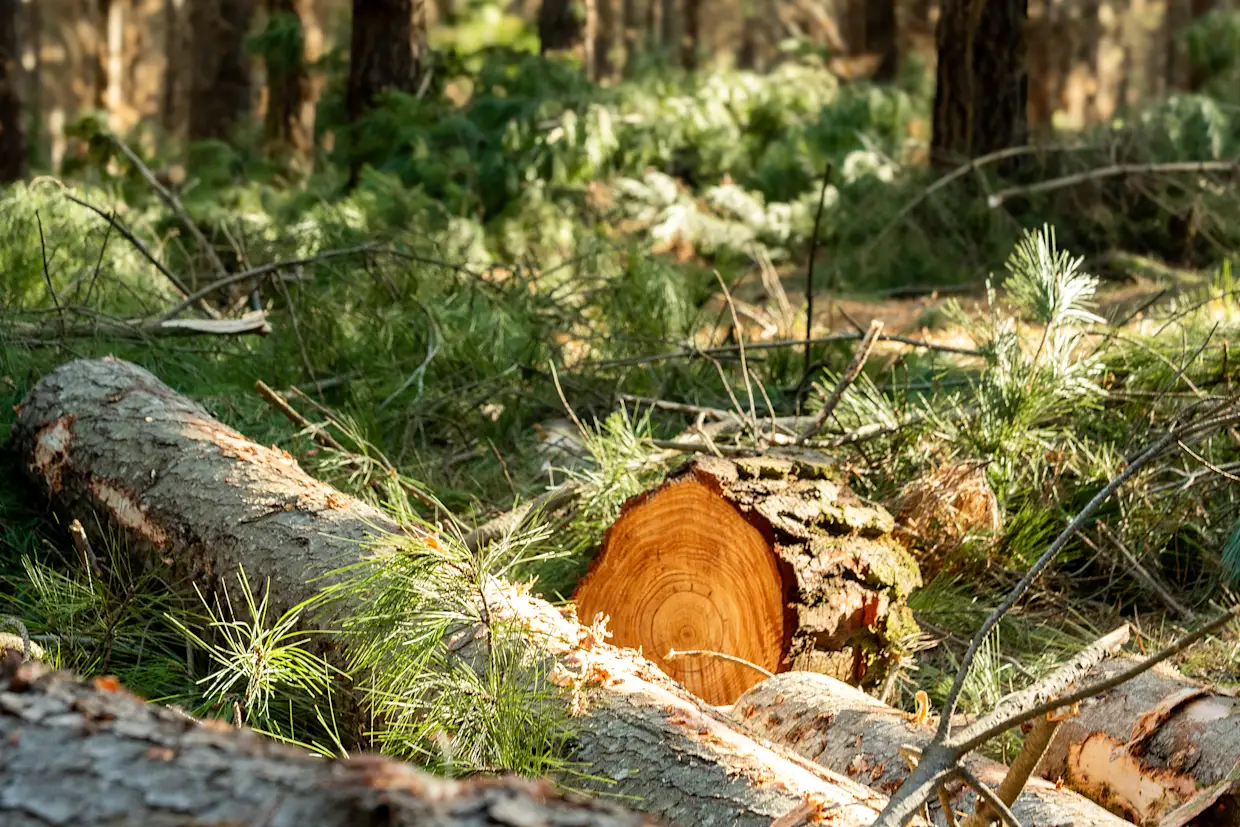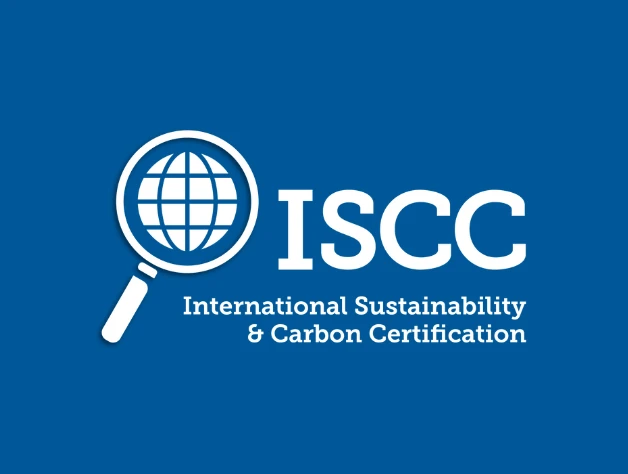NEWS & UPDATES
NEWS & UPDATES
NEWS & UPDATES
We hosted the Clean Fuels Investor Forum in Melbourne, after a sell-out success in Singapore
We hosted the Clean Fuels Investor Forum in Melbourne, after a sell-out success in Singapore
We hosted the Clean Fuels Investor Forum in Melbourne, after a sell-out success in Singapore
Nov 5, 2025
/
by HAMR Energy
/
5 min read
We hosted the Clean Fuels Investor Forum in Melbourne, after a sell-out success in Singapore.
Nov 5, 2025
/
by HAMR Energy
/
5 min read
We hosted the Clean Fuels Investor Forum in Melbourne, after a sell-out success in Singapore.
Nov 5, 2025
/
by HAMR Energy
/
5 min read
We hosted the Clean Fuels Investor Forum in Melbourne, after a sell-out success in Singapore.
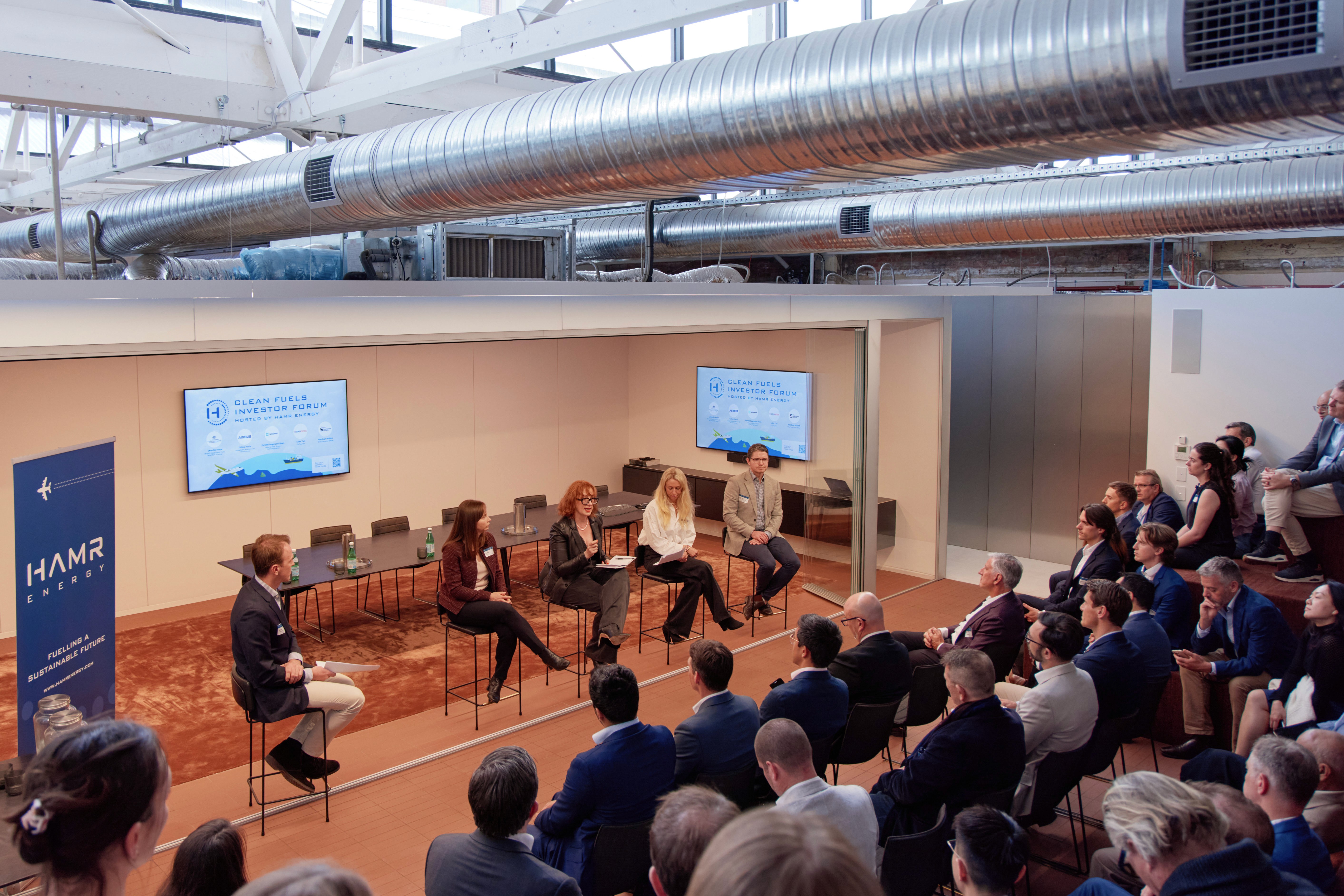



A huge thank you to our expert panellists and audience who joined us for an evening of renewable-fuelled insights on scaling clean fuels across APAC and beyond. We were lucky to have an amazing cross-section of speakers from across the clean fuels ecosystem from shipping Pernille Saugmann Olsen, aviation , Céline Parle, technology Luke Tan , policy Baethan Mullen and Government Jennifer Anne.
Jennifer Anne | Branch Head, Liquid Fuels Security and Strategy, Department of Climate Change, Energy, the Environment and Water, Australian Government
Pernille Saugmann Olsen | Head of APAC Origination & Green Fuels Origination, A.P. Moller - Maersk
Luke Tan | Co-Founder, Supercritical Solutions (& HAMR Energy Technology Partner)
Céline Parle | Sustainable Aviation Fuel Investments, Airbus
A clear takeaway from the evening is that Australia’s clean fuels industry is maturing rapidly. Investors, government and industry are aligning around a shared vision, scaling clean fuels in Australia as both a national capability and an economic opportunity.
A huge thank you to our expert panellists and audience who joined us for an evening of renewable-fuelled insights on scaling clean fuels across APAC and beyond. We were lucky to have an amazing cross-section of speakers from across the clean fuels ecosystem from shipping Pernille Saugmann Olsen, aviation , Céline Parle, technology Luke Tan , policy Baethan Mullen and Government Jennifer Anne.
Jennifer Anne | Branch Head, Liquid Fuels Security and Strategy, Department of Climate Change, Energy, the Environment and Water, Australian Government
Pernille Saugmann Olsen | Head of APAC Origination & Green Fuels Origination, A.P. Moller - Maersk
Luke Tan | Co-Founder, Supercritical Solutions (& HAMR Energy Technology Partner)
Céline Parle | Sustainable Aviation Fuel Investments, Airbus
A clear takeaway from the evening is that Australia’s clean fuels industry is maturing rapidly. Investors, government and industry are aligning around a shared vision, scaling clean fuels in Australia as both a national capability and an economic opportunity.
A huge thank you to our expert panellists and audience who joined us for an evening of renewable-fuelled insights on scaling clean fuels across APAC and beyond. We were lucky to have an amazing cross-section of speakers from across the clean fuels ecosystem from shipping Pernille Saugmann Olsen, aviation , Céline Parle, technology Luke Tan , policy Baethan Mullen and Government Jennifer Anne.
Jennifer Anne | Branch Head, Liquid Fuels Security and Strategy, Department of Climate Change, Energy, the Environment and Water, Australian Government
Pernille Saugmann Olsen | Head of APAC Origination & Green Fuels Origination, A.P. Moller - Maersk
Luke Tan | Co-Founder, Supercritical Solutions (& HAMR Energy Technology Partner)
Céline Parle | Sustainable Aviation Fuel Investments, Airbus
A clear takeaway from the evening is that Australia’s clean fuels industry is maturing rapidly. Investors, government and industry are aligning around a shared vision, scaling clean fuels in Australia as both a national capability and an economic opportunity.
Key Takeaways from the evening
🔵 Low-Carbon Fuels Investment is a national priority for the Australian Government
Between the $250 million Innovation Fund and the newly announced $1.1 billion Cleaner Fuels Program, Australia is moving quickly to build this industry, building a stronger platform for bankable clean fuel offtake and investment and addressing national priorities of fuel security, regional economic growth and decarbonisation
🔵 Australia’s Competitive Edge:
Australia consumes approximately 62 billion litres of fuel annually (mostly diesel and jet fuel) and 90% of that is imported, with only about 1% currently from low-carbon fuels. Yet we have the land, renewable resources, scalable feedstock to make local production a strategic imperative for a resilient and growing clean fuels economy.
🔵 Not all fuels are produced the same
The carbon intensity of clean fuels depends on their production pathways and feedstocks; not all are created equal. You can understand the difference by looking at the feedstock origin and conversion to fuel pathway. For example, HAMR Energy’s projects use residual forestry residues (such as sawmill offcuts and thinnings) to produce ultra low-carbon methanol. Because these are by-products of sustainable forestry, rather than crops grown directly for energy, they avoid land-use change emissions and achieve a significantly lower lifecycle carbon intensity compared to primary crop-based biofuels.
🔵 Shared Infrastructure = Shared Upsides for Hard-to-Abate Sectors:
Maritime, aviation and other hard-to-abate sectors can co-utilise infrastructure, storage, pipelines, and hubs, with low-carbon methanol playing a dual role to unlock cross-sector scale and lower costs. As seen in HAMR Energy's portfolio pipeline and hub-and-spoke model, Low Carbon Methanol offers versatility. It can be used as a low-carbon shipping fuel and can also be converted via Methanol-to-Jet technology to produce Sustainable Aviation Fuel (SAF) for aviation.
🔵 Scaling hydrogen technologies depends on clean fuel project investment:
Companies like UK-based Supercritical are developing pioneering electrolyser technology to enable cheaper, more efficient low-carbon methanol at scale, but require partnerships with projects like HAMR Energy’s and others in order to reach commercial maturity.
🔵 First movers will win:
Unlike the solar and wind markets which took decades to scale, the policy tailwind for clean fuels is strong and happening today. The teams that secure sites, feedstocks, and offtake early will set both the cost curve and the market for decades to come.
🔵 Investment criteria for clean fuel projects:
We discussed the key criteria investors look for when evaluating projects: (1) Team and governance: experience, credibility and ability to deliver. (2) Feedstock: quality, availability and sustainability. (3) Carbon intensity: not all low-carbon fuels are created equal; feedstock and pathways can vary widely.(4) Offtake strategy: who’s buying, what contracts exist and what policy frameworks support demand.
🔵 Grant milestone announced on the night for HAMR Energy:
Our team, along with our forestry partners and the @University of the Sunshine Coast, has been awarded a $1.1 million “Fibre to Fuels” grant to maximise value from residual forestry feedstocks.
Key Takeaways from the evening
🔵 Low-Carbon Fuels Investment is a national priority for the Australian Government
Between the $250 million Innovation Fund and the newly announced $1.1 billion Cleaner Fuels Program, Australia is moving quickly to build this industry, building a stronger platform for bankable clean fuel offtake and investment and addressing national priorities of fuel security, regional economic growth and decarbonisation
🔵 Australia’s Competitive Edge:
Australia consumes approximately 62 billion litres of fuel annually (mostly diesel and jet fuel) and 90% of that is imported, with only about 1% currently from low-carbon fuels. Yet we have the land, renewable resources, scalable feedstock to make local production a strategic imperative for a resilient and growing clean fuels economy.
🔵 Not all fuels are produced the same
The carbon intensity of clean fuels depends on their production pathways and feedstocks; not all are created equal. You can understand the difference by looking at the feedstock origin and conversion to fuel pathway. For example, HAMR Energy’s projects use residual forestry residues (such as sawmill offcuts and thinnings) to produce ultra low-carbon methanol. Because these are by-products of sustainable forestry, rather than crops grown directly for energy, they avoid land-use change emissions and achieve a significantly lower lifecycle carbon intensity compared to primary crop-based biofuels.
🔵 Shared Infrastructure = Shared Upsides for Hard-to-Abate Sectors:
Maritime, aviation and other hard-to-abate sectors can co-utilise infrastructure, storage, pipelines, and hubs, with low-carbon methanol playing a dual role to unlock cross-sector scale and lower costs. As seen in HAMR Energy's portfolio pipeline and hub-and-spoke model, Low Carbon Methanol offers versatility. It can be used as a low-carbon shipping fuel and can also be converted via Methanol-to-Jet technology to produce Sustainable Aviation Fuel (SAF) for aviation.
🔵 Scaling hydrogen technologies depends on clean fuel project investment:
Companies like UK-based Supercritical are developing pioneering electrolyser technology to enable cheaper, more efficient low-carbon methanol at scale, but require partnerships with projects like HAMR Energy’s and others in order to reach commercial maturity.
🔵 First movers will win:
Unlike the solar and wind markets which took decades to scale, the policy tailwind for clean fuels is strong and happening today. The teams that secure sites, feedstocks, and offtake early will set both the cost curve and the market for decades to come.
🔵 Investment criteria for clean fuel projects:
We discussed the key criteria investors look for when evaluating projects: (1) Team and governance: experience, credibility and ability to deliver. (2) Feedstock: quality, availability and sustainability. (3) Carbon intensity: not all low-carbon fuels are created equal; feedstock and pathways can vary widely.(4) Offtake strategy: who’s buying, what contracts exist and what policy frameworks support demand.
🔵 Grant milestone announced on the night for HAMR Energy:
Our team, along with our forestry partners and the @University of the Sunshine Coast, has been awarded a $1.1 million “Fibre to Fuels” grant to maximise value from residual forestry feedstocks.
Key Takeaways from the evening
🔵 Low-Carbon Fuels Investment is a national priority for the Australian Government
Between the $250 million Innovation Fund and the newly announced $1.1 billion Cleaner Fuels Program, Australia is moving quickly to build this industry, building a stronger platform for bankable clean fuel offtake and investment and addressing national priorities of fuel security, regional economic growth and decarbonisation
🔵 Australia’s Competitive Edge:
Australia consumes approximately 62 billion litres of fuel annually (mostly diesel and jet fuel) and 90% of that is imported, with only about 1% currently from low-carbon fuels. Yet we have the land, renewable resources, scalable feedstock to make local production a strategic imperative for a resilient and growing clean fuels economy.
🔵 Not all fuels are produced the same
The carbon intensity of clean fuels depends on their production pathways and feedstocks; not all are created equal. You can understand the difference by looking at the feedstock origin and conversion to fuel pathway. For example, HAMR Energy’s projects use residual forestry residues (such as sawmill offcuts and thinnings) to produce ultra low-carbon methanol. Because these are by-products of sustainable forestry, rather than crops grown directly for energy, they avoid land-use change emissions and achieve a significantly lower lifecycle carbon intensity compared to primary crop-based biofuels.
🔵 Shared Infrastructure = Shared Upsides for Hard-to-Abate Sectors:
Maritime, aviation and other hard-to-abate sectors can co-utilise infrastructure, storage, pipelines, and hubs, with low-carbon methanol playing a dual role to unlock cross-sector scale and lower costs. As seen in HAMR Energy's portfolio pipeline and hub-and-spoke model, Low Carbon Methanol offers versatility. It can be used as a low-carbon shipping fuel and can also be converted via Methanol-to-Jet technology to produce Sustainable Aviation Fuel (SAF) for aviation.
🔵 Scaling hydrogen technologies depends on clean fuel project investment:
Companies like UK-based Supercritical are developing pioneering electrolyser technology to enable cheaper, more efficient low-carbon methanol at scale, but require partnerships with projects like HAMR Energy’s and others in order to reach commercial maturity.
🔵 First movers will win:
Unlike the solar and wind markets which took decades to scale, the policy tailwind for clean fuels is strong and happening today. The teams that secure sites, feedstocks, and offtake early will set both the cost curve and the market for decades to come.
🔵 Investment criteria for clean fuel projects:
We discussed the key criteria investors look for when evaluating projects: (1) Team and governance: experience, credibility and ability to deliver. (2) Feedstock: quality, availability and sustainability. (3) Carbon intensity: not all low-carbon fuels are created equal; feedstock and pathways can vary widely.(4) Offtake strategy: who’s buying, what contracts exist and what policy frameworks support demand.
🔵 Grant milestone announced on the night for HAMR Energy:
Our team, along with our forestry partners and the @University of the Sunshine Coast, has been awarded a $1.1 million “Fibre to Fuels” grant to maximise value from residual forestry feedstocks.
false
false
false
false
OUR LATEST NEWS
OUR LATEST NEWS
OUR LATEST NEWS
